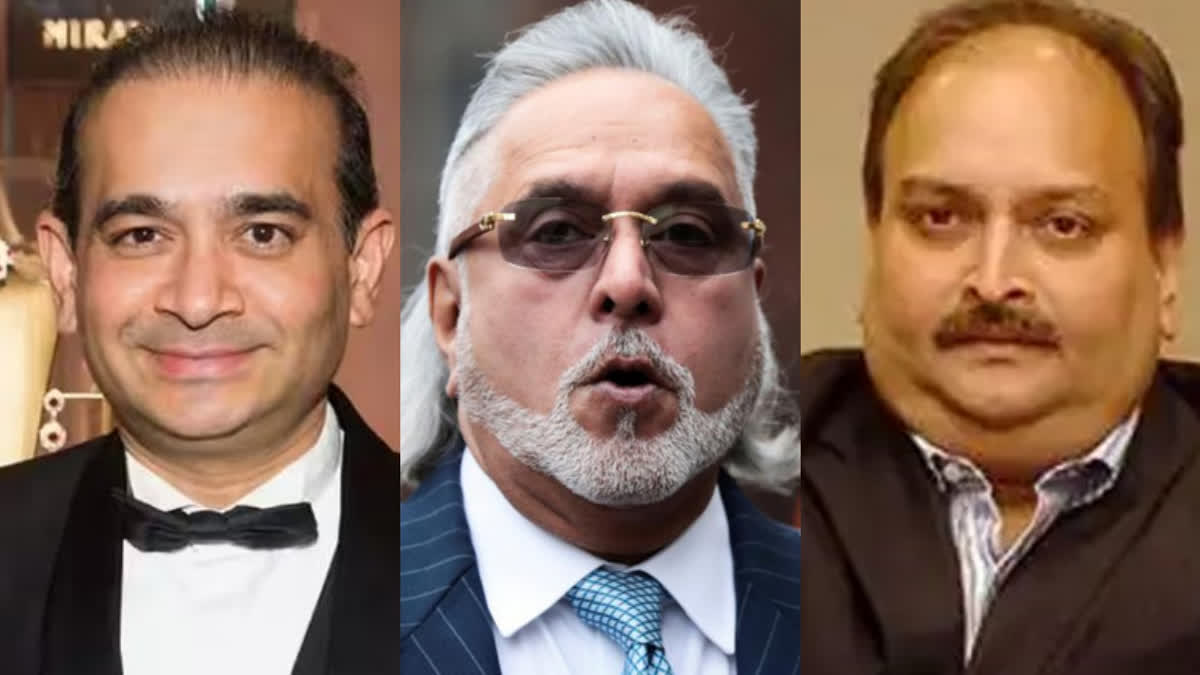New Delhi: The Centre has chalked out a strategy to push G20 leaders to establish a common platform to take actions against fugitives residing on foreign soil, their extradition as well as locating properties of economic offenders.
The strategy, if it gets support from all G20 leaders, would enable India to bring back several such fugitive and economic offenders like Vijay Mallya, Nirav Modi, Junaid Iqbal Memon, and Abhijit Asom among others.
A top government official told ETV Bharat that rules would be formulated on locating properties of economic offenders who have a tax debt in the country of their residence for its recovery. Asserting that G20 is the best platform to materialize such a global strategy, the official said that India is pushing for a nine-point agenda for action against fugitives of economic offences and asset recovery.
The official said that a common platform should be set up for sharing experiences and best practices including successful cases of extradition, gaps in existing systems of extradition and legal assistance. A joint effort by G20 countries to form a mechanism would ensure that entry and safe havens to all fugitive economic offenders would be denied at all aspects, the official said.
The Indian law enforcement agencies have filed applications under the Fugitive Economic Offenders Act, 2018 (FEOA), against 19 persons. Amongst all 19 persons, 10 including Vijay Mallya, Nirav Modi, Nitin Jayantilal Sandesara, Chetan Jayantilal Sandesara, Dipti Chetan Jayantilal Sandesara, Hitesh Kumar Narendrabhai Patel, Junaid Iqbal Memon, Hajra Iqbal Memon, Asif Iqbal Memon and Ramachandran Vishwanathan have been declared as Fugitive Economic Offenders (FEOs) by the courts.
Also read: Nirav Modi case: Bombay HC pulls up Punjab National Bank for inaction
The official said that taking advantage of the “loopholes” in the extradition treaty, the fugitives have been taking shelter in different countries for many years. India presently has extradition treaties with 48 countries and extradition arrangements with 12 countries. The Extradition Arrangements with Italy and Croatia are confined to Crimes related to Illicit Traffic in Narcotics Drugs and Psychotropic Substances owing to the fact that India, Italy and Croatia are parties to the 1988 UN Convention against Illicit Traffic in Narcotics Drugs and Psychotropic Substances.
Most of these offenders have taken refuge in countries which have been shielding them for the last so many years and India has been fighting their extradition. India’s joint mechanism push, according to the official, would ensure that G20 countries would deny entry to all fugitive economic offenders.
Also read: Only Mehul Choksi, Nirav Modi and Vijay Mallya now left to be inducted into BJP: Saamana
India has also suggested that the Financial Action Task Force (FATF)-the global watchdog for money laundering and terror financing, should be called upon to assign priority and focus to establishing international cooperation for real-time and comprehensive exchange of information between the competent authorities and financial intelligence units.
“FATF should be tasked to formulate a standard definition of fugitive economic offenders,” the official stated. According to the official, India will also emphasise that principles of the United Nations Convention Against Corruption (UNCAC), and United Nations Convention Against Transnational Organized Crime (UNOTC), especially those related to “International Cooperation” get effectively implemented.
Also read:Delhi Prepares for G20 Summit Amidst Traffic Restrictions and Tight Security
